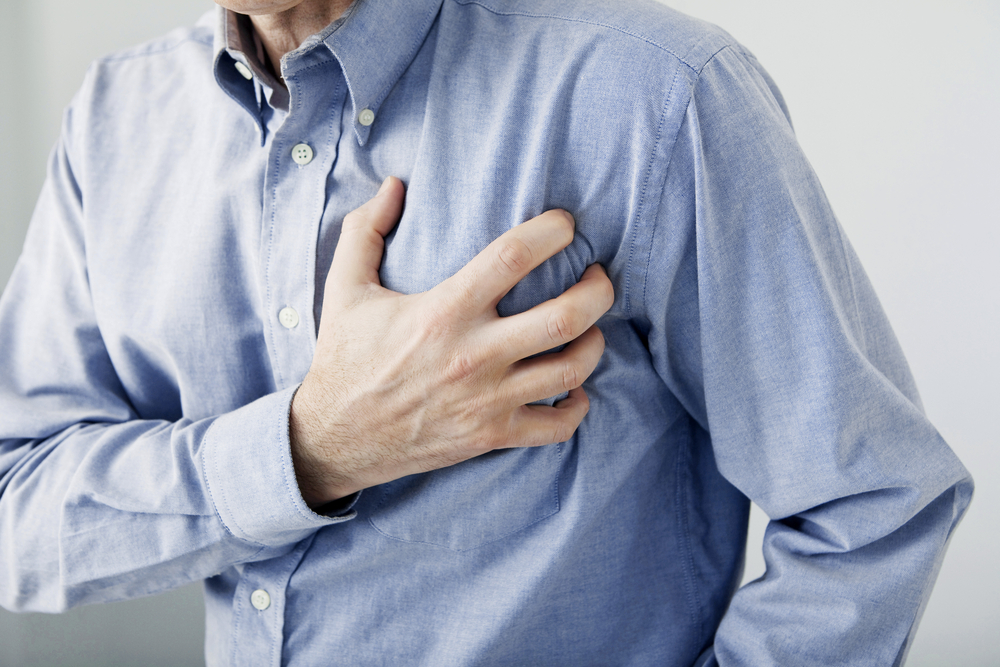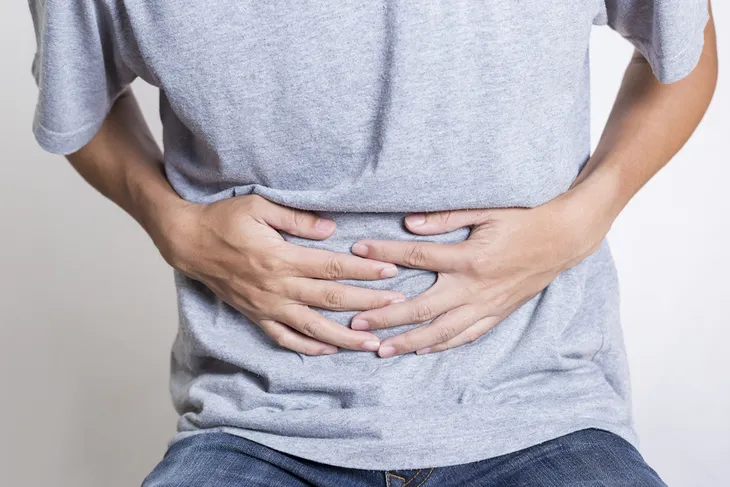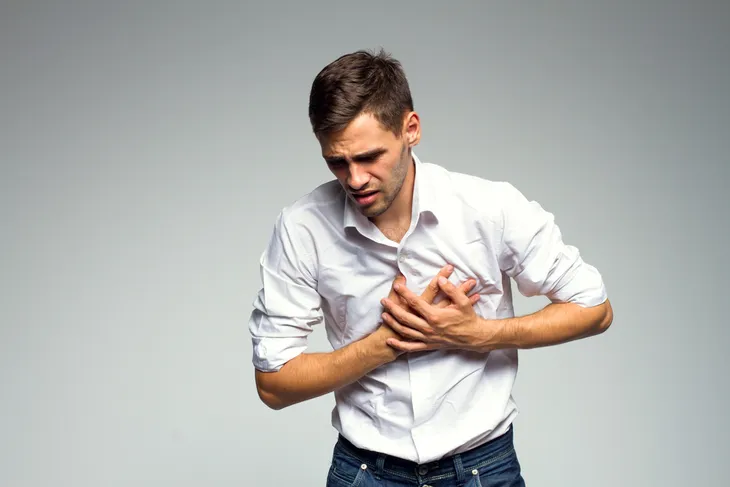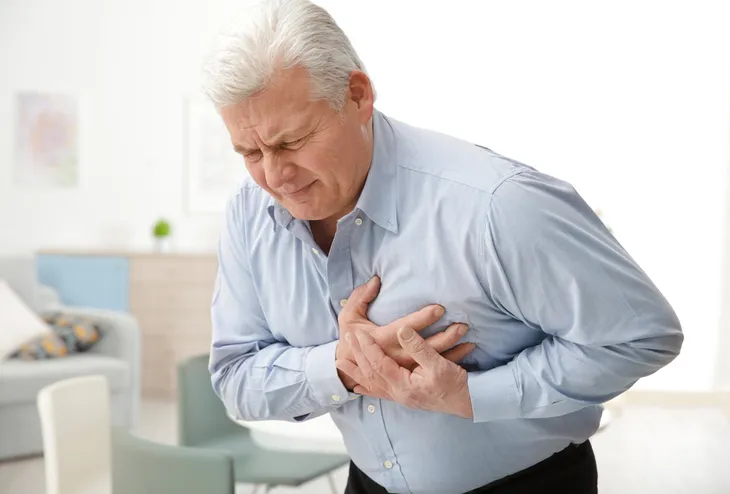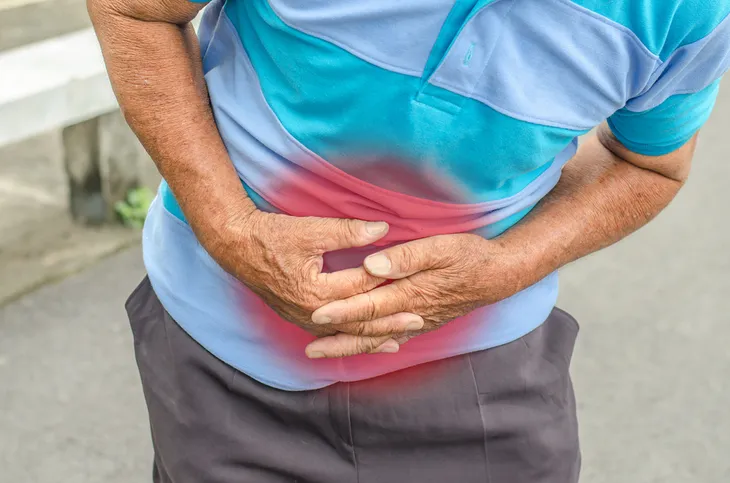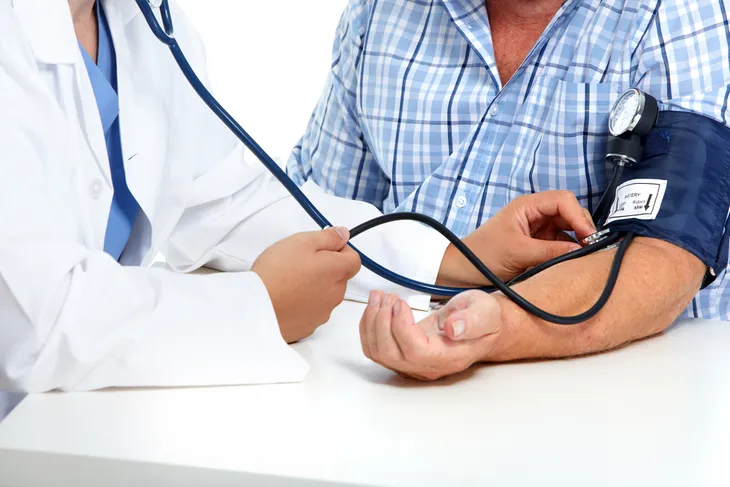What if you could tell when you’re about to have a heart attack? It turns out there are signs in men that can warn a cardiac episode is possibly on the way, so you can seek medical attention earlier.
As Men’s Health points out, it’s not always like in the movies when a guy that seems perfectly healthy suddenly clutches his chest and keels over. That scenario does happen but it’s not as common as you might think. There are ways your body may be trying to tell you that something’s up with your heart. Here are 12 signs of heart attacks in men.
Tummy Troubles
It’s apparently true that the way to a man’s heart is through his stomach. Healthline.com says nausea, vomiting, and other gastrointestinal issues can be early warning signs of a heart attack.
The source also indicates that abdominal pain or heartburn could be a sign of a “silent heart attack,” which is when you have a heart attack without all the classic symptoms. In fact, as many as 200,000 Americans have a silent heart attack every year without realizing it.
Bedroom Woes
Men’s Health says this symptom is very specific to men, namely, it’s erectile dysfunction. The reason some men can’t maintain an erection is from blood vessel damage, and the source notes if “your blood vessels down there are damaged, there’s a good chance the ones near your heart could be damaged as well.”
The source says if it’s an isolated performance issue, it could be due to fatigue or stress. But if it happens to you regularly, you’re going to want to talk to a doctor about the possible causes.
Excessive Snoring
This could be a sign of sleep apnea, a serious condition that causes you to stop breathing during the night while you sleep. If left untreated, sleep apnea can put you at higher risk for a heart attack.
It turns out those “pauses in breathing” put a lot of stress on your body while raising your blood pressure. High blood pressure mixed with the associated irregular heartbeat from improper breathing can make a heart attack more likely.
Chest Pressure
If you feel like an invisible person is sitting on your chest, your body may be trying to give you a heads up about your heart, says WebMD. While there may be pain involved, it’s generally a feeling of fullness or squeezing.
In some cases, this warning sign could be mistaken for heartburn. The discomfort will be located in the left or middle part of your chest, and the feeling can come and go.
Chest Pain
WebMD adds that the sudden onset of pain and other symptoms is often referred to as a “Hollywood heart attack,” as that’s how they’re often depicted in films. However, a heart attack will most often begin with mild pain or discomfort as we mentioned earlier.
However, this doesn’t mean it can’t happen this way. While it’s pretty obvious extreme pain in your chest is a medical emergency, you should also consider consulting a doctor for mild pain and discomfort. It could be the beginnings of something a lot more serious.
Feeling Fatigued
Feeling chronically tired can be a sign of many health problems, but one of those potential problems is physical exhaustion (at least in women), says Men’s Health. “[although] studies can’t say for sure whether the same is true for men, you should pay attention if your usual routine suddenly seems unusually hard – or [if] you’re too worn out to do your normal tasks altogether,” adds the source.
This is because the left ventricle of your heart, which is responsible for pumping blood to the rest of your body, maybe having troubles. It may also result in not being able to properly fill with blood between heartbeats. The result is tissues not getting the vital oxygen they need, leaving you feeling exhausted.
Pain In Other Places
A heart attack doesn’t just mean you feel pain in your chest, reminds WebMD. It notes that other areas of your body may start to ache because they’re being starved of blood supply.
The source says this painful area will usually be a part of your body above your waist, such as the stomach, shoulders, one or both arms, back, neck, jaw, and even your teeth.
You Can’t Walk it Off
Men’s Health says that excessive pain or burning in your legs from walking may be a sign something’s up. The source says this is a common symptom of peripheral artery disease, “a narrowing of the arteries that limits blood flow to your limbs, stomach, and head.”
You might find you can’t walk the same route without feeling discomfort, or you’ll have to stop to take a break more often before continuing. What’s this got to do with your heart? “The plaque buildup that contributes to the narrowing of your arteries in your limbs may also be occurring in arteries [in] your heart,” adds the source.
Acute Anxiety
If you’re normally pretty cool and collected but find yourself feeling quite anxious out of the blue, it could be related to your heart, says Men’s Health. This symptom is more common in women, but it is still something to pay attention to if you’re a man.
If you’re not in a stressful situation but are having strong anxiety symptoms, such as shortness of breath or heart palpitations, you might actually be experiencing a heart attack (on the flip side, people end up in the ER mistaking a panic attack for a heart attack). However, the source says some guys put off seeking medical help when they have these symptoms, thinking it’s just a “mood thing.”
Shortness of Breath
WebMD calls this dyspnea, and it can occur on its own or with chest pain when it’s related to a heart attack. In fact, it may be the only warning sign that you’re having a heart attack.
The shortness of breath can happen whether you’re being active or sitting still “and is probably due to congestion (fluid buildup) in your lungs,” adds the source. You may also be coughing or wheezing.
Sense of “Impending Doom”
VeryWellMind.com says you may feel like something unpleasant is going to happen before it actually happens. It’s apparently more than just a reaction to something that’s already happened; it can be a precursor to something that’s medically significant.
People who have experienced this symptom describe a “feeling that something unusual is happening” or even a “desire to seek immediate medical care even though other symptoms don’t seem to warrant it.” While some people may write this feeling off, the source says it’s medically significant and has been dated back to ancient Greece. The source admits there are “surprisingly” few studies about the sense of impending doom as a medical symptom, but it says the symptom is connected to a heart attack, as well as other health episodes.
Defending Against an Attack
Of course, the best approach is to identify any risk factors, such as high blood pressure or high cholesterol, long before you’re being admitted to the hospital for a heart attack.
This means scheduling regular medical checkups “and learning to recognize the symptoms of a heart attack,” says Healthline. If you have any cardiac risk factors (such as smoking), specifically ask for tests to check the condition of your heart.
